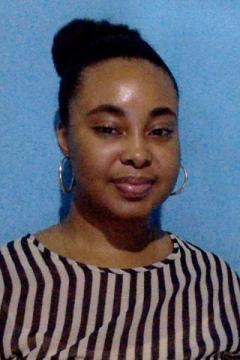Students adapted 17th century Spanish plays with their own voices
The 5-year-old twins stayed in bed all night, asleep and unaware of what was happening outside the home.
His mother, Kathleen Berger, wore black pants and a white shirt. I looked at her text, enclosed in a white envelope, and began to sing.
“Honey, show me the way out of this maze of confusion before I lose my mind,” he sang in his operatic voice throughout the Litchfield Park neighborhood.
It was early April and Berger, who had recently graduated online from Arizona State University, was finalizing her entry into the 2022 New Gold Digital Theater Festival.
For two minutes and 40 seconds he took the Spanish opera “The Dissimulated Dead” by the Portuguese author Ángela de Azevedo and transformed it into his reyher notes and vocal range convey the story of a woman who steps out of the traditional passive female role and takes control of her own narrative.
When his performance ended, Berger bowed slightly, as if singing in front of an audience.
Six weeks later, he got the news: his performance received an honorable mention at the festival.
This is the end of the story.
It begins with the COVID-19 pandemic and an Arizona State University online professor’s desire to create a community in a closed world.
The New Gold Festival began in 2021 and was attended by a group of Wesleyan students from Ohio who wanted to explore new ways of understanding and adapting classical Spanish theater. The 2022 festival focused on works that addressed current social issues such as gender, racial and social inequality, systemic oppression, cultural identity and the environment.
When she learned about the festival, María Domínguez, a teacher at Arizona State University’s School of International Arts and Cultures, quickly realized she wanted her students to be part of it.
“I have been teaching Spanish for many years at Arizona State University, but my background is in theater,” said Dominguez. “So when the theater collapsed because of COVID and people couldn’t go to any of the places they used to congregate, and all these companies were like, ‘How do we express ourselves? I added one and one and said, “Okay, this will be great for my students.”
Dominguez responded to a Zoom call with students from several of his classes to explain how they could take the written assignments they need to do for the class and turn them into video voices for the festival.
The only rule: digital tickets cannot last more than five minutes. In addition to this, the students were free to explore their creativity on how to adapt the works in Spanish.
nekidra nesbit
Nequedra Nisbet, an elderly woman who studied Domínguez’s Spanish course on sustainability, chose “El Viejo Celoso (The Jealous Old Man)” by Miguel de Cervantes, which tells the story of infidelity.
In which videoNisbett, who lives in the Caribbean, complains about how foolish it can be to fall in love with Canizaris’ lies. In the video she plays three different characters: Dona Lorenza, Hortigosa and Christina.
“I found it very interesting, not necessarily because it’s related to me, but because it’s a problem women face when they are sometimes mistreated by men,” Nesbitt said.
Six voices from Arizona State University have been selected to participate in the festival, which welcomes entries from students and recent graduates from across the country. Nesbitt was selected as a finalist, as was Ashley Arrien, who presented a new version of Pedro Calderón’s “La dama duende (The Phantom Lady)”, in which a man falls in love with a hidden, veiled or by chance woman. dark.
In which AdaptationAryn lies on the couch and complains that she is “invisible” because she has no Internet and cannot post on social media.
“I’m literally dying,” he shouts at the suffering of millennials.
“We have all these great playwrights, and then you combine them with hashtags, with influencers, using TikTok: the theme remains the same, the feelings are the same, the meaning is the same, but the language is different,” said Dominguez. . “It’s an innovative way to explore this business.”
Berger, who began her training at Arizona State University in 1989 specializing in vocal performance, graduated in Spanish in 2020 and was a student in Dominguez’s Foundational Texts for Spain class. When she was given the task of rewriting a play in Spanish and then recording herself as she delivered it, she asked Domínguez if it was appropriate to sing the assignment.
“He said yes,” Berger recalls. “She was very excited.”
In addition to leveraging her over 35 years as an actress and opera singer, Berger’s timing was perfect for her. During her class, young composer and actor Joshua Verne lived with her and her husband and helped with the children.
“So I asked him, ‘Is there any way I can do a short monologue in Spanish and you can write the music for me in four days?'” Berger said. “
Verne got the job done and four evenings later Berger sang outside the house.
“Which wouldn’t have been a waste, but a relatively easy task because doing a monologue is something I’ve been experimenting with for over 35 years and it’s been a very, very interesting project,” Berger said.
It turns out that online education at the ASU isn’t limited to a laptop and a Zoom call. A mother could give birth to 5-year-old twins and a shy Caribbean woman in 17th-century Spain and at a festival that celebrated her talent and creativity.
“That’s really how it brings people together,” Nesbitt said. “I’ve had the opportunity to meet and interact with people in places I’ve never seen before. It really is a community. ”
Pictured above: Kathleen Berger records her opera version of “The Disguised Dead” at the 2022 New Gold Digital Theater Festival. Berger received an honorable mention at the festival. Photo courtesy of Kathleen Berger


